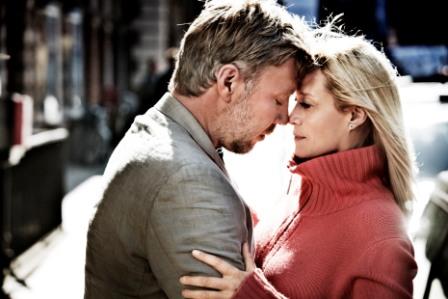With Lars von Trier’s antics hogging the headlines, it’s easy to forget that it was his Danish compatriot Susanne Bier who picked up this year’s Oscar for best foreign language film. For those with an aversion to subtitles, the good news is that In a Better World features lengthy sections of English dialogue. It’s also a sincere and well-acted drama about the moral dilemmas facing a doctor and his young son.
In London, 10-year-old Christian (William Jøhnk Nielsen) gives a moving address at the funeral of his mother, who has succumbed to cancer. Shortly afterwards he accompanies his dad Claus (Ulrich Thomsen) back to Denmark where they rattle around in a huge house, barely communicating. The sullen new boy is treated with suspicion by his classmates and is soon caught up in a spat between Elias (Markus Rygaard) and the school bully. Initially it’s Christian who gets the bloody nose, but his revenge is both swift and satisfyingly brutal. The new friends then conspire to hide a knife that was used in the attack.
This story of two Danish families fractured by bereavement and marital breakdown is at its best when it sticks to domestic matters. Elias’s parents Anton (Mikael Persbrandt) and Marianne (Trine Dyrholm) are both doctors who seem more committed to their work than to addressing the tensions in their marriage. The problem for the family – and for this reviewer – is that Anton keeps running off to Africa to patch up the horribly mutilated victims of a conflict that is never explored. Eventually he comes face to face with the man directly responsible for these unspeakable acts of cruelty and must decide where the limits of his conscience lie.
This isn’t the first time that Third World suffering has been used as a fly-infested backdrop to a Westerner’s personal epiphany. Anton’s struggles here reminded me a bit too much of the “ER goes to Africa period”, which marked the end of my interest in the medical soap. Bier’s earlier film Brothers/Brødre also cut between the protagonist’s horrifying experiences in a war zone – in that case Afghanistan – and his family’s life back home in Denmark. But I think In a Better World should have spent more time developing the roles of the adults in this story – particularly Thomsen’s emotionally distant Claus.
Writer Anders Thomas Jensen has created such a compelling web of relationships here – particularly between the boys – that the overseas excursions seem unnecessary. As Christian, William Jøhnk Nielsen is the catalyst for much of the turmoil that affects both families. Rather than address the cause of his anger with Claus, he directs his grief into conflicts with bullies both inside and outside the school gates. In a Better World effectively contrasts Anton’s passivity in the face of a thuggish mechanic who taunts him for being Swedish, with Christian’s penchant for direct action. It’s an impressive performance by the young actor and one that’s matched by Markus Rygaard, whose sweet-natured Elias almost pays a high price for his loyalty.
As Trine Dyrholm’s frustrated wife retires to the beach house for the night there’s a fabulous shot in which her bed seems to merge with the water just beyond the huge picture window. It’s an image that needs no dialogue. But in a film that explores the consequences of both violence and cruel words, it is Marianne’s anguished outburst at Christian that provides the most shocking moment. As a mother she should realise the devastating effect this will have on the traumatised boy. In a better world, of course, she would have said nothing.
(In a Better World is released in UK cinemas on 19 August.)





1 Pingback